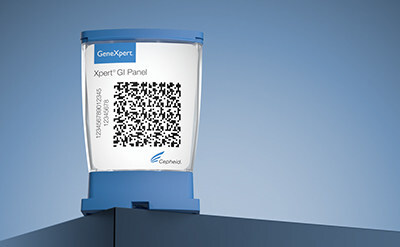Iterum Therapeutics has won approval from the US Food and Drug Administration (FDA) for Orlynvah (oral sulopenem) to treat uncomplicated urinary tract infections (uUTIs) caused by E. coli, Klebsiella pneumoniae or Proteus mirabilis in adult women who have limited or no alternative antibacterial treatment options.
The FDA nod marks the first approved product for Iterum and the first approved indication for Orlynvah. It also marks the first US approval for an oral penem antibiotic (a class of beta-lactam antibiotics with wide-ranging antibacterial activity).
Orlynvah is also only the second uUTI treatment approved in the past two decades. In April, the FDA approved Utility Therapeutics’ Pivya (pivmecillinam), a penicillin antibiotic that has been approved in Europe for more than four decades.
Orlynvah offers an alternative to current antibiotic treatments and represents an important development in addressing antibiotic resistance, which has been a growing global health concern.
uUTIs affect millions in the US each year and primarily affect women. Although UTIs are often straightforward to treat, they are commonly caused by strains of bacteria increasingly resistant to traditional antibiotics, such as amoxicillin and ciprofloxacin. The rise in antibiotic resistance has created an urgent need for new treatment options that remain effective against these resistant strains.
Representing a new treatment option in this indication, Orlynvah is designed to treat infections caused by bacteria resistant to other available oral antibiotics, with specific efficacy against extended-spectrum beta-lactamase (ESBL)-producing bacteria, which are highly resistant to many common antibiotics.
Related: Shields Health Solutions’ New Collaboration to Boost Specialty Pharmacy Access in Chronic Care
The FDA approval of Orlynvah was based on two pivotal, Phase III clinical trials (SURE 1 and REASSURE) that evaluated the safety and efficacy of Orlynvah compared to ciprofloxacin (SURE 1) and Augmentin (REASSURE) in the treatment of adult women with uUTIs.
SURE 1 showed superiority to ciprofloxacin in fluoroquinolone-resistant infections, while REASSURE revealed Orlynvah’s non-inferiority and statistical superiority to Augmentin in the Augmentin susceptible population. Orlynvah was generally well tolerated in both SURE 1 and REASSURE clinical trials.
In SURE 1, while Orlynvah outperformed ciprofloxacin at treating infections in patients who were resistant to the control antibiotic, it was inferior to the control drug in patients for whom ciprofloxacin remained effective. Based on this data, the FDA rejected Iterum’s application in 2021 and asked Iterum to do a second study “potentially using a different comparator drug.”
This led to the REASSURE trial in which Orlynvah was shown to be statistically superior to Augmentin with a response rate of 62 percent versus 55 percent, respectively.
Despite the positive trial results from REASSURE, the FDA convened an advisory committee in early September to deliberate over concerns that “inappropriate use” of the treatment could lead to further antimicrobial resistance (AMR).
The FDA has recently been raising concerns about potential off-label use of antibiotics and antimicrobial resistance.
UTIs are among the most common bacterial infections in the US and worldwide, with up to 60 percent of women experiencing an uUTI in their lifetime, and up to 40 percent facing recurrence.
Each year, about 40 million uUTI prescriptions are issued in the US, with Iterum estimating that around one percent of these infections are caused by pathogens resistant to all commonly available oral antibiotics.
Increasing antibiotic resistance, an aging population with comorbidities, and the limited safety of existing oral treatments are making antibiotic selection more challenging for physicians.
Previously, patients who contracted UTIs caused by ESBL-producing bacteria often required intravenous antibiotic treatment, which typically requires administration in a hospital or clinical setting. Orlynvah offers a convenient oral option for these cases, allowing patients to be treated at home, reducing the need for hospitalization, and offering a simpler path to recovery.
“Orlynvah offers new hope for patients suffering from difficult-to-treat uUTIs. The introduction of novel products, like Orlynvah, is an important way to combat antimicrobial resistance to other approved oral agents and offers a potential solution to patients and physicians,” said Corey Fishman, Iterum’s chief executive officer (CEO).
“As the first oral penem approved in the US, Orlynvah offers an excellent alternative treatment option for appropriate patients in the underserved uUTI market. With FDA approval and a clear label, we will renew our efforts to achieve a strategic transaction involving Orlynvah with the goal of maximizing value for our stakeholders,” said Fishman.
Iterum noted that the FDA approval represents not only a significant milestone for Orlynvah but is also an important step in the fight against antibiotic resistance. By bringing an effective, accessible oral treatment to the market, Iterum aims to reduce the reliance on intravenous therapies and help curb the progression of resistance in common UTI pathogens.
If you want your company to be featured on Xtalks.com, please email [email protected].












Join or login to leave a comment
JOIN LOGIN